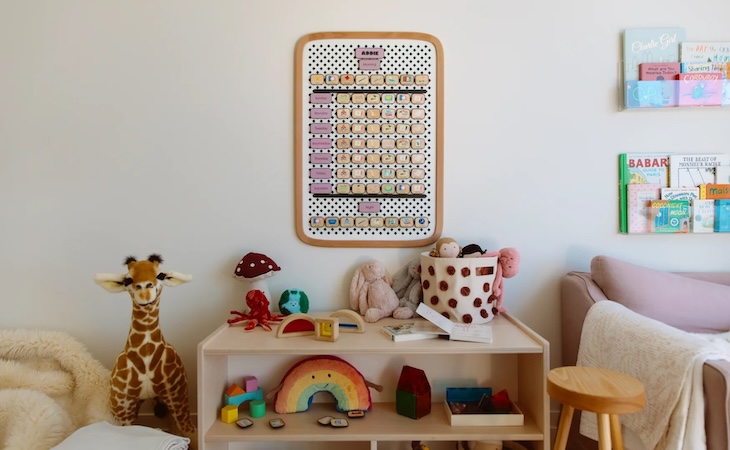Sleeping in separate bedrooms—a practice commonly known as getting a “sleep divorce”—isn’t always a sign that your relationship is on the rocks. In fact, in certain scenarios, splitting up could actually be beneficial for your partnership, your health, and your sleep hygiene.
“There are actually many couples who sleep in separate rooms,” points out Lynelle Schneeberg, PsyD, sleep psychologist, fellow of the American Academy of Sleep Medicine, and author of Become Your Child’s Sleep Coach. “They do this for a variety of reasons, and this can be a good solution for some couples.”
Research supports the idea that separate sleep is often better quality sleep, Schneeberg says. “If you put a couple in a sleep lab and study them when they sleep in the same bed and again when they sleep in separate beds, they almost always have better sleep quality when they are separate.”
When to consider a sleep divorce
If you think you might benefit from solo sleep but hesitate to raise the issue with your partner, remember that the decision to “sleep divorce” isn’t always all or nothing. “Many couples sleep separately on work nights, for example, and together on the weekends,” says Schneeberg.
Here are four times experts say you should consider splitting up.
You have a new baby
It should come as no surprise that having a new baby takes a major toll on sleep. One way to salvage some shuteye is sleeping in “shifts” in different rooms, says Darria Long Gillespie, MD, clinical assistant professor at the University of Tennessee School of Medicine and author of Mom Hacks.
The thinking is, if you and a partner take turns taking care of baby—you take the first half of the night, for example, and your partner takes the second, or vice versa—then you’ll be able to get four or five solid hours of sleep, which is far more restorative than just the two or three you’d get tending to baby or hearing baby cry. That’s important because sleep is closely tied to emotional regulation, so even if you’re a little bit more rested, you’re a lot better able to function come daytime (both emotionally and physically).
Another option? “Sometimes couples decide that they will trade off nights,” says Schneeberg. “One parent will sleep in a separate room to get a deep night of sleep while the other listens for the child and vice versa.”
Ultimately, however you decide to split up the nights, it’s important to find what works best for you and your partner. Just keep in mind: It’s also important to teach your children to sleep, Schneeberg says, so if your child is past the baby stage and still disturbing your sleep (read: climbing into bed) and that’s why you’re sleeping separately, touch base with a sleep specialist.
Related: A sleep coach’s 5-step plan for getting your kids to sleep
Your sleep styles conflict
“People have very strong preferences about their sleep schedules, environments, and bedrooms,” says Schneeberg. You like the room cold, your partner likes it warm; you like the TV on, your partner prefers silence. “Separate sleep environments allow people to sleep with the room the way they like it, and this can lead to better sleep,” she says.
Before you go separate ways, though, consider where exactly you and your partner differ on sleep preferences and if there’s anything you can do in the same room to make things work. If, say, the issue is that you like a softer sleep surface but your partner likes a firmer one, an

Our luxurious customizable mattress with 50 precise firmness options
could be the solution. It gives you the ability to control the firmness of your side of the bed separately from that of your partner.
Your work schedules clash
If you wake up at 6 a.m. for work and are in bed by 9 p.m. and your partner prefers to stay up past midnight and isn’t needed in the office until 10 a.m., then there’s a good chance one of you will have your sleep disrupted when the other enters or exits the bed. In this case, sleeping separately ensures fewer wake-ups and disturbances, letting you both start the day better rested.
Of course, in this scenario, it’s important to know yourself and your partner as well as what kinds of sleepers you both are, says Long Gillespie. For example, if you wake up at the slightest noise but your partner could sleep through a hurricane, you might be able to sneak in or out of bed without him noticing. But if he’s coming in late after work calls? It might be best for him to bunk up in the guest room.
Your partner just keeps you up
Have a partner who snores or kicks or groans or talks in the night? That’s potentially very disruptive, says Schneeberg, and can warrant separate sleep spaces.
One caveat here: If severe snoring is the main reason for one partner’s departure from the bedroom, make an appointment with a sleep doctor. You want to rule out the possibility of sleep apnea, a serious sleep condition where you unknowingly stop breathing for short periods throughout the night. “Undiagnosed and untreated sleep apnea increases the risk of strokes and heart attacks,” says Schneeberg.
A healthy relationship depends on healthy sleep. Here are five proven ways to become a better sleep partner so both of you can get the shuteye you need.




